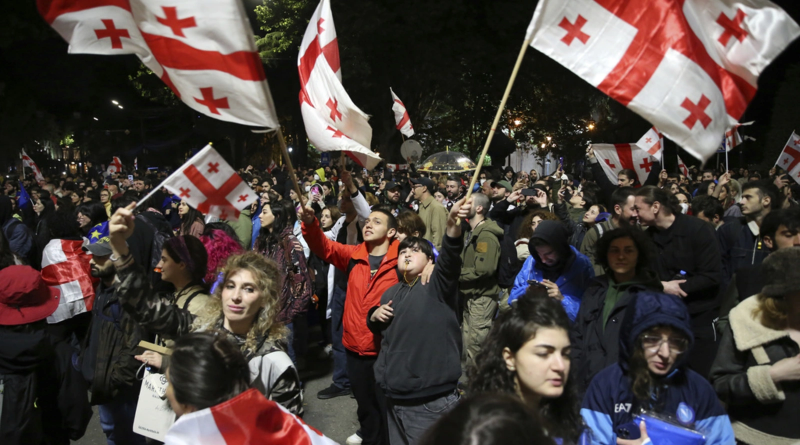The Liberal World: Brief Hiccups or Signs of Decline?
By Colin Smith
Scholars and policymakers are fundamentally concerned with what the future of international relations will look like, both on a theoretical and tangible level. The last half century has seen major shifts in the structures of polarity of the global system, the influence of international institutions, and the guiding ideology of global affairs. Since the 1990s, the international order has been guided by the Western world, particularly through a plethora of international institutions. These institutions have generally sought to spread the ideas of free and fair democracy as well as human rights protections throughout the world. While the liberal order was regarded by many as the ideal international political structure, recent events have demonstrated that the guiding power of the liberal world may not be as stable and eternal as many had thought. Thus, it is essential to identify the potential cracks in this Western order and what would need to be done to maintain it.
As early as 1989, Francis Fukuyama put forth the notion that the end of the Cold War would mark a major turning point in the history of the world, and that a general acceptance of a liberal democratic ideology was beginning to spread across the global system that would eventually bring about the end of global conflict. This idea was largely accepted as true for a number of years; democracy spread throughout the former Soviet states, nations became more integrated into international institutions, and open conflict between great powers seemed to diminish. Recent circumstances, however, have brought about concerns over whether Fukuyama’s idea is true. Today, we may find Samuel Huntington’s idea that neither Western civilization nor the prevalence of liberal ideology is eternal more compelling. The invasion of Ukraine, democratic backsliding around the world, the rise of right-wing populism, and the recent shift in U.S. policy toward isolationism fuel the fear of further degradation of the norms of Western liberalism.
Recently, two events have shaken confidence in global liberalism: the declaration of martial law in South Korea and the halting of discussions to enter the EU in Georgia. South Korea has had a tumultuous history regarding the conflict between democratic and autocratic ideologies. Following the Korean War, South Korea underwent a multi-stage process of democratization, going from an illiberal form of democracy immediately after the war, to a form of democratic authoritarianism, and then a gradual embrace of democratic norms that culminated in a participatory democracy. In December 2024, however, President Yoon Suk Yeol turned against these norms and declared a national state of martial law, citing concerns of support for North Korea among the opposition party. While martial law is recognized within the South Korean constitution, President Yoon vastly overstepped his authority by suspending parliament and attempting to forcibly prevent members from meeting, using the declaration to target opposition party members, and declaring the situation without legitimate reasoning. Although South Korea’s parliament was eventually successful in overturning the declaration, the clear attempt by the leader of a democratic nation to wield unilateral power to suspend a legislative body and target political opposition goes against the very foundations of liberal democratic ideology. If a notable democratic nation like South Korea can experience such a powerful violation of democratic norms, what may be in store for nations with less firm commitments to liberal ideology?
On the other side of the globe, the future of liberal ideology is also at risk in Georgia. A former Soviet state, Georgia also has a lengthy and complicated relationship with democracy and liberal ideology. Though it did not come as close to establishing firm democratic norms as South Korea, Georgia has demonstrated movement toward this embrace, particularly through the steps it has taken to join the European Union. However, the nation’s most recent election, widely condemned by both the EU and Georgian citizens for being rife with Russian interference, saw the reappointment of Irakli Kobakhidze as Prime Minister and the immediate suspension of talks to join the EU. This decision stands in extreme opposition to the desire of the majority of citizens, and resulted in an explosion into fierce protests around the country. These protests are a powerful extension of democratic ideals and a pure form of citizen expression, though their necessity is deeply concerning. A nation in which the majority of the population seeks entry into one of the world’s leading liberal institutions now hosts a political system, potentially empowered through direct foreign influence, which has taken steps to actively disregard the people’s desires and has continued to suppress the people’s reaction. Unlike South Korea, the protests in Georgia are still ongoing, but the extreme suppression of protestors and continued blocking of EU entry discussions make the nation’s future quite unclear.
To be sure, these two examples may not be a sign of worldwide liberal decline when viewed in a vacuum. The situation in South Korea shows the defense against unilateral power grabs, and the situation in Georgia still has hope to see the success of democracy. However, when these are viewed alongside general rates of democratic backsliding and autocratic expansionism, they may be seen as a sign of fracture in the liberal world order. Thus, it is essential that we embrace the warning posed by Huntington and accept that the current Western order is not necessarily an immortal and unflinching concept.
Maintaining the liberal order requires vigilance and engagement. International institutions must remain at the center of international relations, democratic nations must take steps to preserve their ideology, and authoritarianism must be firmly opposed. The Western order is not gone, but it is in danger. Protecting it will require strong and decisive action, but these efforts are well worth it for the future of the liberal world.
Colin Smith is a first-year graduate student in the School of Diplomacy, specializing in international security and foreign policy analysis. His area of focus lies in emerging technologies, nation-state alliance networks, and non-state actors.

